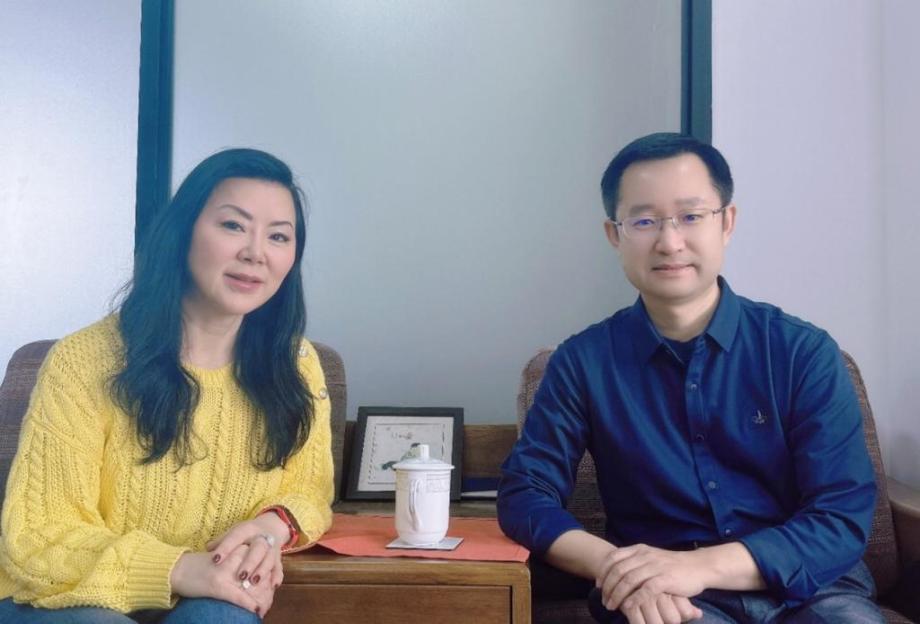In the wave of technological innovation, the healthcare industry is experiencing an unprecedented transformation. Professor Chengli Song's MedTech Entrepreneurship Camp in Shanghai Zhangjiang Hi-tech Park has become a crucial base for medical innovation in the Yangtze River Delta region. During her visit to China, EFEC CEO Lily Lin had a constructive meeting with Professor Song, establishing a partnership to explore collaboration in UK-China medical technology entrepreneurship services, talent cultivation, and business exchange activities.
About Shanghai Zhangjiang MedTech Entrepreneurship Camp
Founded by Professor Song in Zhangjiang, Shanghai since 2017, the MedTech Entrepreneurship Camp focuses on incubating and investing in early-stage cutting-edge medical technologies. It provides opportunities for entrepreneurs and innovative projects in the minimally invasive devices, helping early-stage medical projects connect with renowned enterprises and professional investment institutions. Since its establishment, the camp has successfully held 18 sessions, including 14 domestic and 4 international ones. Collaborating with multinational companies such as Medtronic, Becton & Dickinson (BD) and Baxter, it adopts a model integrating medicine, engineering, business, innovation, and investment, nurturing over 500 industry elites and medical entrepreneurs.
Professor Chengli Song: A Pioneer in MedTech Innovation
Professor Song graduated from Southeast University in Nanjing with a master's degree in biomedical engineering and obtained his PhD in Mechanical Engineering from Cardiff University in 2000. He then conducted research on minimally invasive devices and technologies at the University of Dundee in Scotland, UK. In 2009, Professor Song was appointed as a Distinguished Professor of the Shanghai Oriental Scholar programme and joined the University of Shanghai for Science and Technology (USST) as Vice Dean of the School of Medical Devices and Food. He leads the Ministry of Education's Engineering Research Centre for Modern Minimally Invasive Medical Devices and Technologies (Shanghai Institute for Minimally Invasive Therapies - SIMIT). Professor Song's main research areas include minimally invasive medical devices, intelligent materials, and biomechanics. His research achievements have been recognised by international medical technology awards, including the Best Paper Award from the European Association for Endoscopic Surgery (EAES) and the Shanghai Science and Technology Progress Award.
Bridging Innovation: EFEC's Role in UK-China Life Science Collaboration
The strategic partnership between EFEC and Professor Song's MedTech Entrepreneurship Camp represents a significant step towards fostering UK-China collaboration in life sciences and medical technology innovation. EFEC aims to leverage its strong connections within the Cambridge ecosystem to create a powerful bridge between Professor Song's extensive network in China and the vibrant Cambridge life science community and beyond. By tapping into Cambridge's thriving innovation ecosystem, EFEC can facilitate access to key resources and platforms that bring together people, companies, and investors, enabling interdisciplinary collaborations across biomedical research, cutting-edge technology, and clinical needs.
EFEC's role extends beyond mere introductions, actively promoting the integration of UK-China academic research, entrepreneurship education, technology transfer, and capital support. This collaboration has the potential to accelerate the development and commercialisation of innovative medical technologies, addressing global health challenges and enhancing the international impact of both Chinese and UK innovations in the life sciences sector.
Call for collaboration
We invite innovative startups, researchers, and industry leaders in the medical technology field to join this exciting initiative. By participating in this cross-border collaboration, you can gain access to unique resources, expertise, and market opportunities in both the UK and China. Together, we can shape the future of healthcare and drive meaningful advancements in medical technology on a global scale.
Photo from left to right: Ms Lily Lin and Professor Cheng-Li Song



